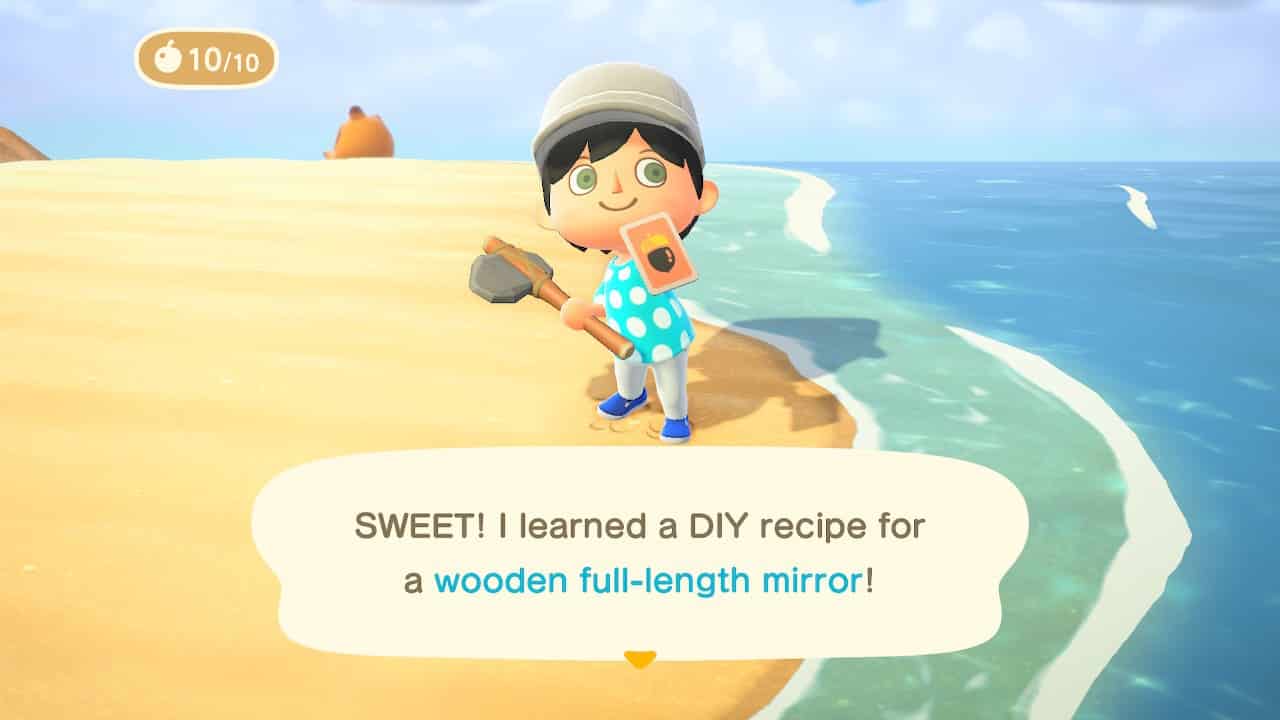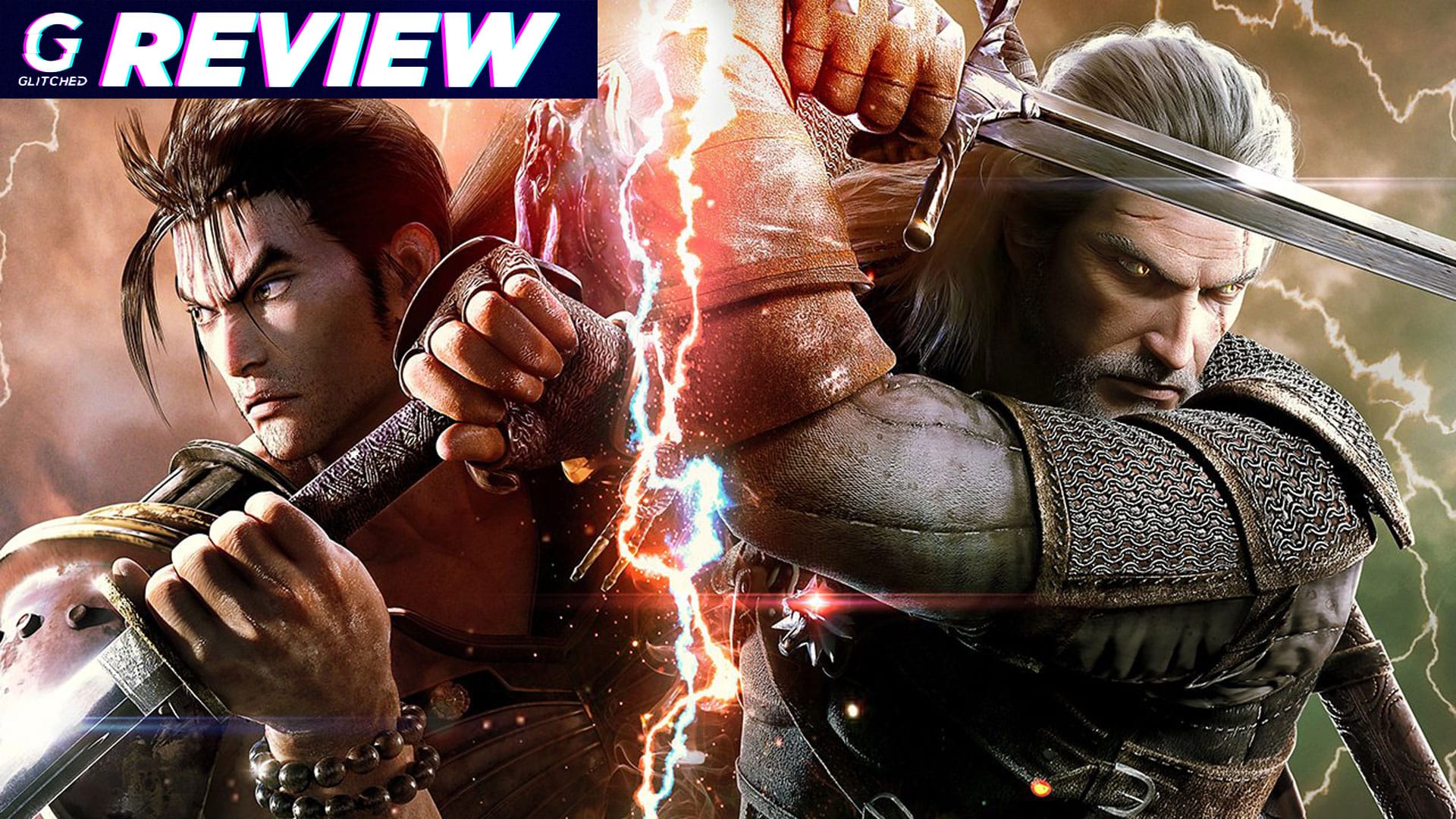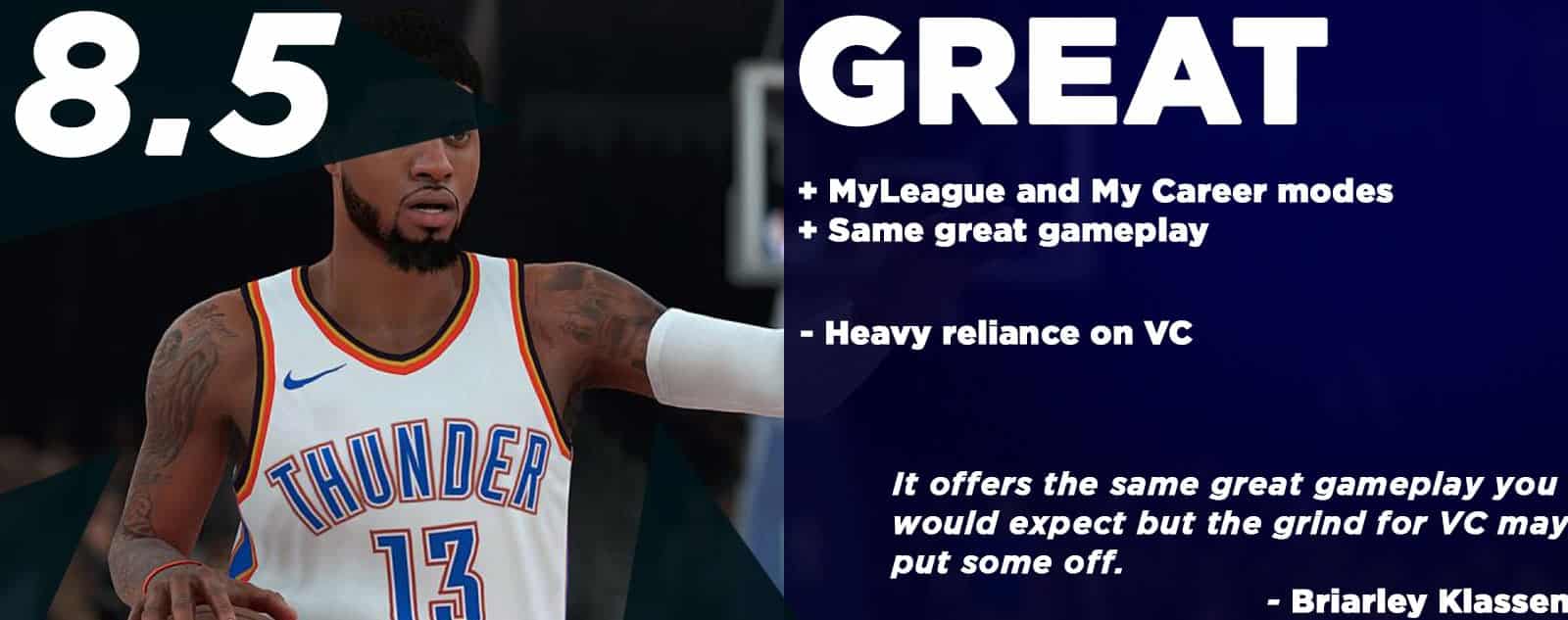For the last two weeks, I have had a reason to turn my Nintendo Switch on every day. Be it an hour or perhaps five. It brought back so many memories of playing Animal Crossing: New Leaf on the 3DS as I would lay in bed every night and walk around my town, listen to the crickets in the distance as my feet raced across the grass while I chased down a moth. The magic of the Animal Crossing series is in how it comes to life at your own pace. You can log in once a day for ten minutes and just water your flowers or spend a couple of hours creating the perfect botanical gardens with them instead. Animal Crossing: New Horizons is the biggest and most ambitious game in the series and there’s a lot to chew on. Again, at your own pace.
https://www.youtube.com/watch?v=BCoqZap0tCw
Unlike past games, you start off with almost nothing and have to build an island community from the ground up. The idea of Animal Crossing: New Horizons is that you have decided to move to an island on a Tom Nook Getaway Package. With all the drama in the world right now, it sounds like the perfect idea and Animal Crossing: New Horizons in a way, acted as my escape from the chaos going on around me. Once I had created my character and chosen the island to live on, the game rolled out at a very slow pace. Animal Crossing: New Horizons’ introduction phase is the slowest I have experienced in the series as even two weeks later, I had just obtained the most vital construction kits in the game. With that being said, it works as the game makes you feel like there’s no rush to get anything done and you can go about the whole experience at your own timing.

Tom Nook immediately puts you into debt the moment you settle in on the island as the “Getaway Package” is not free. It was then that I realized I would be spending most of my days trying to make money and earn Nook Miles in order to make more money. While unlike New Leaf, you are not technically the “mayor” of your island, most of the time it feels like you are. Many of the decisions that need to be made are all put on your shoulders throughout the game. So between paying off the latest expansion on your once-tented home, to deciding where the Museum is going to be placed, the responsibility you are given in Animal Crossing: New Horizons is greater than ever.
While most of the residents will be on a permanent vacation, your job is to run this rock in the middle of the ocean to success. That means bringing new people to the island, deciding where they are going to live on it, making it all pretty for them and even going as far as altering the environment itself to expand on the game’s locations. Animal Crossing: New Horizons brings the traditional “life simulator” aspect from the series but at the same time, the new additional features make for a much-needed change in pace.

At the same time, you are the villager you have known and loved from past games too which means you home, activities and daily exercises all come into play beyond the responsibilities of the island. Deciding where to place a new home for an arriving resident, building a park for the community to spend time in, or simply deciding on what wallpaper suits your new bathroom. The things to do are endless in the game but at the same time, it is limited to what the game has on offer that specific day.
For the most part, Animal Crossing: New Horizons keeps the player as busy as they want to be. There’s always something to do but you can also just not do any of it if you don’t feel up to it. The daily rinse-and-repeat progression saw me digging up a few fossils to donate to the museum, checking the new items in the store and cleaning up some weeds that popped up due to the rain a few days before. I then got carried away chopping some wood to make fences in order to build a community park. That then led me to shake some trees in order to get branches to make some torches to add to the park and before I knew it, I had been playing for six hours.

The magic of Animal Crossing: New Horizons is in its pacing. The game works in real-time with specific things taking place every day and specific animals being seen during certain times of the day. Chances are, that once a milestone has been reached such as welcoming a new person to the island or building a store, it will only open the next day or even the following one. But these changes to the game’s world never feel like a rush.
Animal Crossing: New Horizons now has a new milestone progression system in the form of Nook Miles. These miles are used to purchase new DIY projects to make at your bench, new hairstyle options and a list of many other things. Once a day, you are given the opportunity to earn multiple miles by completing random objectives which range from chopping 10 pieces of wood, selling items and other daily activities. You earn miles for each of these objectives and often have the opportunity to earn five times the amount too. But the milestones come in a stamp form that unlocks as you progress through various activities. Catch one hundred fish and you’ll earn a thousand miles. Shoot a present out of the sky and into the water (worst mistake ever) and you’ll earn 500.

These milestone rewards don’t necessarily force you to complete activities but they surely help by rewarding you just for playing the game so everything you do feels like a worthwhile completion. Nook Miles are important to your island as you can purchase a range of things with them. The most important is the Mile Ticket that lets you fly to a random island to fish, smash rocks for iron and gold nuggets and other resources. Its the best way to make Bells, which like past games acts as the game’s currency. Just two visits to these islands and you can bank a good 50,000 bells in goods. That is if you have already donated newly caught fish and bugs to the museum once in order to place it in the building.
The more I played Animal Crossing: New Horizons the more my island become a bustling town and the higher my star rankings went up. I planted more trees, crafted items to place in everyone’s backyards, watered flowers, and built bridges and even slopes in order to get to higher areas on the island. It all started out quite slowly but the possibility of the island’s success kept me going. There are things I don’t enjoy about the game such as the breakable tools, the farming for materials to make them and other items, and sometimes, things just felt a little too slow. Animal Crossing: New Horizons is a slow game and not everyone will enjoy watching their character take 5 seconds to dig up a bunch of flowers when you have three dozen to get through.

The lack of quality-of-life elements really annoyed me at times. Why can’t I make a shovel when the wood is in the storage box in my house and the DIY bench is in the house too? Why do I need to go and place the objects into my pockets just to move the leftovers out when I was done crafting. Some of these systems need to be modernized as it all gets a little tedious after a while. The fact that the tools break so often also makes it feel like a chore.
Even with the lack of quality-of-life improvements in Animal Crossing: New Horizons, there is a lot to love about the game. If you spend an hour a day watering your plants or ten hours a day improving your pathways, it is time well-spent. The game’s resident system sees all sorts of faces and creatures come by and become part of your community. I even had two of them fight with each other to the point where I had to try and calm them down. There’s always someone new to meet. Be it the crazy turnip lady that sells you bunches of turnips which you can sell back at a profit (call it the Bitcoin of Animal Crossing if you may). Or the friendly ghost that needs to be put back together after being scared by you at night.

New Horizons does very little to drastically change the game’s formula but it works. Your new mobile phone has a load of apps on it that lets you see what animals you have donated to the museum, a DIY catalogue containing all the recipes you have unlocked, and a customization tool that lets you design prints. All these features were present in past games but have been now placed into the phone for ease of access.
Moving things around your home is also easier now thanks to the ability to go into a dedicated design mode. Here, you can move things around, rotate them and immediately pull items from your storage and place them into the room. It makes decorating a lot faster and easier especially when you have a load of items you need to place down. Of course, your house can contain more rooms now but they all come at the cost of being in debt every time you upgrade it.

As for the island itself, it too can be customized to a certain extent. Bridges can be built across a river, land can be placed and taken away and inclines can be created so you don’t need a ladder to get to higher ground. Like past games, the residents can help contribute to the building of new constructions but they take way too long to donate Bells often leaving me to pay for it all upfront myself. You can also pay to move houses and buildings to another location. Yes, all you do in New Horizons is fork out Bells for everything you do.
The sense of discovery and the rewards for improvement drove me to turn on my Switch every day as I never knew what I was going to find. The magic is in how the game changes over time and throughout the next few months, events are going to take place, the seasonal changes will bring new items into the mix, and of course, as the world changes, so does the game. Even walking through the rain late at night was a peaceful and enjoyable experience even though I never did anything productive. I just wanted to see what the world felt like at night during the rain.

I have not even scratched the surface in Animal Crossing: New Horizons. I have big plans for my island with renovation ideas being thrown around my mind throughout the day. Even laying in bed at night I plan ahead so I know what I need to tackle the next day. Every night when I turn off, I get excited about the possibilities my island holds for the next day. Very few games manage to create this level of joy weeks after playing. It really is your island to create whichever way you see fit and the game allows you to approach this any way you wish.
I also cannot wait to head online and visit other people’s islands too. Something I was unable to do during the review process. The game features the classic visitor system as well as a new local mode where players can all walk around your island if they have accounts on the same Nintendo Switch system. Each console also acts as an island on its own so if you have multiple accounts on the console, then these accounts will be residents on your island.
Verdict
Animal Crossing: New Horizons is not for everyone. Its snail-pace progression may turn you off and its tedious mechanics can be an issue to get through at times. However, it acts as an escape from the world for a few hours where you can build your dream island, run around in the rain in your undies and catch a whale shark with a flimsy fishing rod. There’s a lot to love about the game but there’s also a lot to hate. One thing is for sure, Animal Crossing: New Horizons is like adopting a pet, you will be stuck with it for months and years ahead as you nurture it and love it every single day.
This Animal Crossing: New Horizons review was based on a code sent to us by Nintendo
Available On: Nintendo Switch | Release Date: 20 March 2020 | Price: R999


